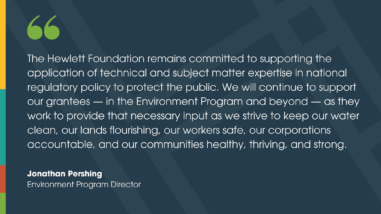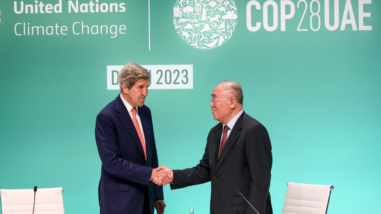The Regulatory Assistance Project
For Special Assistance To The California Public Utilities Commission
-
Amount$75,000
-
Program
-
Date Awarded2/6/2003
-
Term12 Months
-
Type of SupportProject
Strategies
About the Grantee
Grantee Website
www.raponline.org
Address
50 State Street, Suite 3, Montpelier, VT, 05602, United States
Grants to this Grantee
for general operating support
The Regulatory Assistance Project (RAP) focuses on key policy areas to drive a more efficient and equitable decarbonized energy future and to ensure a sustainable and just transition. RAP develops solutions to the questions that regulators and other public, private, and non-government organization decision makers are asking (or should be asking), working to change the narrative and leverage partnerships to accelerate change. RAP’s four policy areas are (a) faster electrification of buildings and transportation, (b) faster phaseouts of gas infrastructure, (c) removing barriers to distributed energy, and (d) decarbonizing the electric grid. Across these four areas, RAP provides decision makers in the power sector with global best practices — and the expertise to implement them. (Substrategy: Electrification)
for general operating support
This one-time grant is to support collaborative work underway by the Regulatory Assistance Project (RAP) between the United State's Federal Regulatory Commission (FERC) and China's National Development and Reform Commission (NDRC) on issues related to integrating renewable energy resources into the electric power grid, environmental and economic dispatch of electric generation and energy price setting, energy markets and reliability matters.



